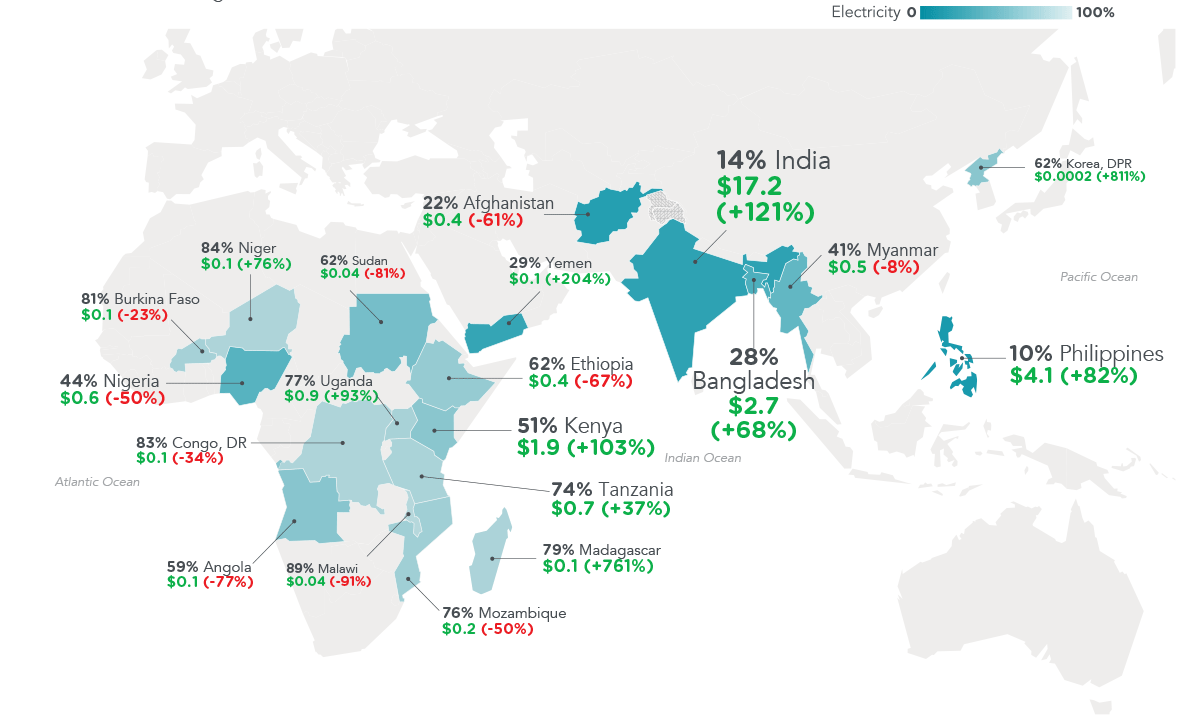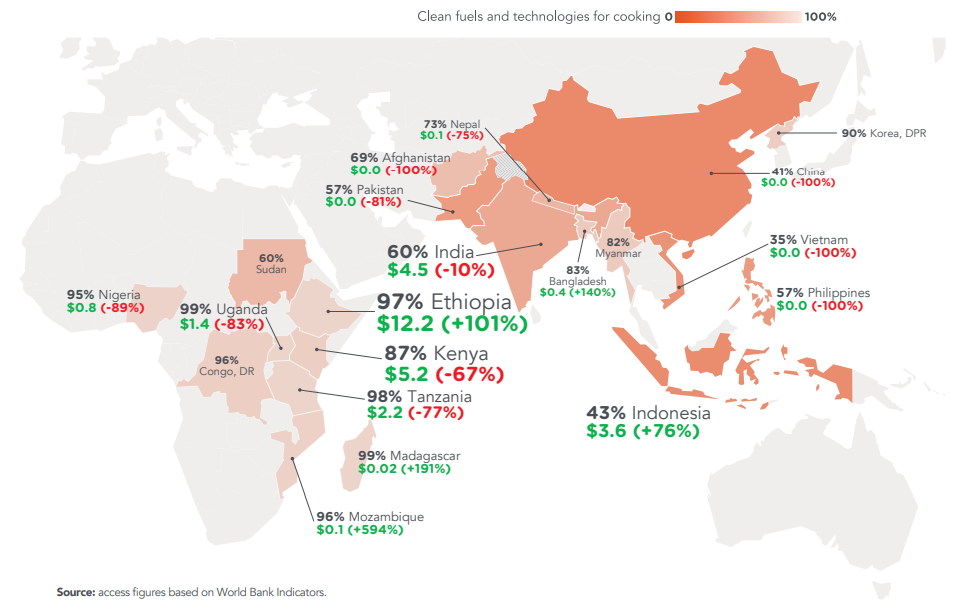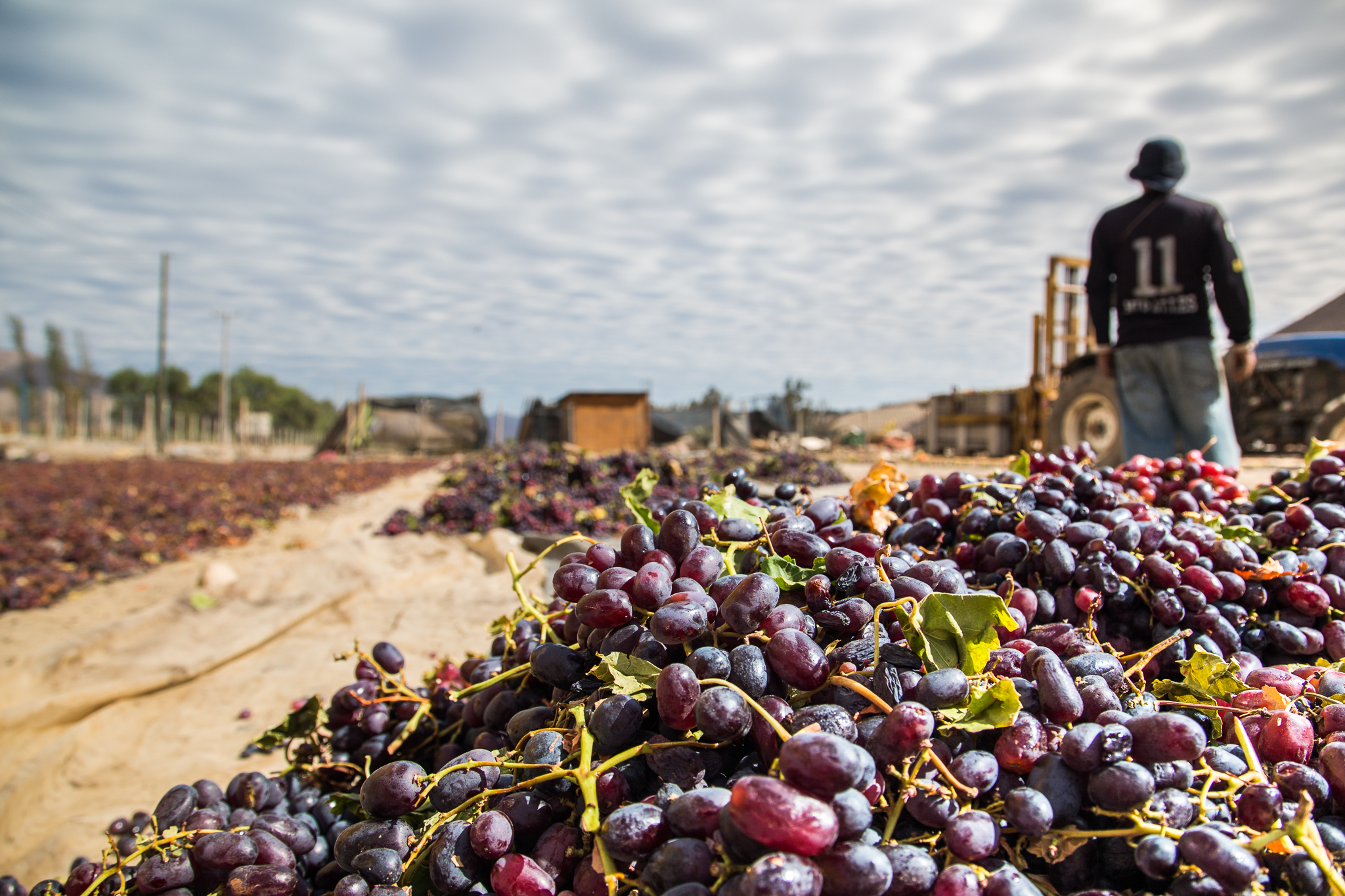Finance to provide electricity to millions of people who live without it is rising, but too slowly to meet the global goal to achieve universal access to sustainable energy and clean cooking by 2030, according to a new report by U.N. initiative SEforALL.
United Nations’ Sustainable Development Goal 7 aims at ensuring universal access to affordable, reliable and modern energy services, increasing substantially the share of renewable energy in the global energy mix, and doubling the global rate of improvement in energy efficiency by 2030. Recent estimates on the progress towards Goal 7 said the number of people without access to electricity decreased from 1.7 billion in 2000 to around 1 billion in 2016.
The recent SEforALL’s report, conducted in partnership with Climate Policy Initiative, shows annual investment of USD 52 billion is needed to meet universal electrification, yet finance commitments for electricity in the 20 ‘high-impact’ countries across Africa and Asia – representing 76% of those without electricity access – has barely increased, averaging just USD 30.2 billion annually.
Only 17% (USD 5 billion annually) of the total electricity finance tracked in the report was directed to African countries, where nearly 600 million people live without energy access.
Barbara Buchner, director of Climate Policy Initiative, said: “Our numbers paint a stark picture. We are falling further and further behind goals for energy access investment. Regions with the highest needs, like Sub Saharan Africa, are getting the smallest share, while we’re seeing big gaps for some of the technologies with the most promise, like off-grid renewable energy and clean cooking. This should be a wake-up call to policymakers and investors who are working to ensure universal and sustainable energy.”
Enlarge

Considering clean cooking, the study depicts an even more challenging situation: finance committed across the 20 countries with the largest clean cooking access gaps – representing 81% of the global population without access – actually decreased to an average of just USD 30 million, compared to the estimated annual investment needed of at least USD 4.4billion.
Enlarge

Percentage of population without access to clean cooking, total finance tracked in 2015-16 (in USD million) and changes from 2013-14. Source: SeforALL (2018)
Moreover, finance for coal-powered energy is increasing in the countries tracked, from USD 2.8 billion to USD 6.8 billion.
“The good news is that renewables offer us a powerful opportunity to provide reliable and affordable clean electricity both through the grid and off-grid”, said Rachel Kyte, CEO and Special Representative of the UN Secretary-General for Sustainable Energy for All. “The bad news is that we are not yet seeing a strong enough project pipeline or sufficient levels of public investment that will crowd in private finance to seize this moment of falling prices for revolutionary technology. Even more worrying is that at the same time we’re seeing incremental increase in funding for renewable energy, investments in coal increased. Coal is not an answer to energy poverty.”
Read more:
SEforALL press release: New Report Reveals Finance to Close Global Energy Access Gaps Dramatically Off-Track to Meet 2030 Targets
SEforALL report: Energizing Finance: Understanding the Landscape 2018.
Accelerating SDG7 Achievement, Policy Briefs in support of the first SDG7 review at the UN High-Level Political Forum 2018, United Nations, 2018.






